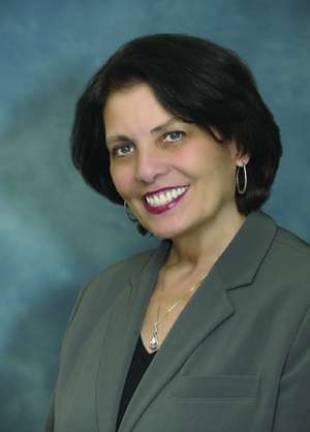Longtime LGBT Advocate Pioneers New Health Services

Barbara Warren heads LGBT health division at Beth Israel Barbara Warren, the director of LGBT health services for Beth Israel, is a humble woman who, according to Vice President for Public Affairs Jim Mandler, "has spent her entire career advocating for individuals in the LGBT community." Before arriving at Beth Israel 11 months ago, Warren spent ten years as a policy advocate, doing research and policy work. The position at Beth Israel was "an opportunity to actually implement this work in a real-world setting," she explained. "That's what's gratifying." Since joining the hospital, she has overseen training in LGBT cultural competency to over a thousand employees. The hospital will also be piloting data collection for clinical management of gender identity this spring, under Warren's supervision. She noted in the past year there has also been increased community wellness programming. Warren explained that the Services and Advocacy for GLBT Elders group (SAGE) opened the first LGBT senior center in the world. "We got a small grant from a donor to do a wellness series called 'Ask the Docs' at the SAGE senior center starting this winter," Warren said. "We're doing similar stuff with the LGBT center and Gay Men's Health Crisis." Despite these successes, Warren's time at Beth Israel has not been without its difficulties. "It's a huge challenge to take good intentions and policies and translate them into sustainable practice in an institution where over 8,000 employees across a variety of disciplines have a lot of other things they're working on," Warren said. "There's a lot of competing demands on time and interest," she added. One of the biggest challenges facing Warren is balancing the delicate art of meeting patient needs, while also protecting their safety and confidentiality. She explained it's a sensitive process, addressing these many factors. "It's not just training," she said. "It's new systems, outreach in the community, grappling with issues in order to do quality assurance and document both emerging needs and best practices." These new systems include the implementation of electronic health records. Warren explained that for health reasons it can be important to identify people who are lesbian, gay and transgender in these records, but there are confidentiality concerns, as it's not simply "the same as saying your age or ethnicity." "We still don't live in a world where people feel totally safe about being out and having their sexual orientation in an electronic health record," Warren explained. "Even in a city like New York, where there's equal protection under law." "I hear people say: 'I don't mind telling my provider, but if it's on my electronic health record, what if I'm in the emergency room, unconscious, in Oklahoma, and it's on my record that I'm a lesbian,'" Warren said. "That's a challenge." Warren plans to continue addressing these issues as aggressively as possible, saying the challenges will not stop her or her colleagues. "We'll never have to worry again with this [electronic database] system about people being treated inappropriately in any setting ... but there are related issues, particularly when you're talking about sexual orientation." She continued: "There isn't equal protection all the way across the board. Experience says it's better to be out, [but] it's still anxiety-provoking." "We're still at the cutting edge in the real-world setting," she added. Nonetheless, Warren believes there's broad support across the institution for improving services to LGBT patients. "This institution is 100 percent behind working through the problems," Warren said. "It's really motivated by doing the right thing. A lot of people are motivated by getting patients, but [Beth Israel and its partners] are motivated by quality of care." While grappling with these tough issues on a regular basis, Warren even devotes some of her free time to providing medical care to others, including taking care of her elderly mother.